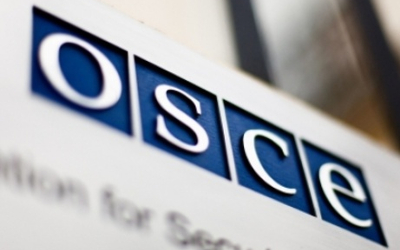AKIPRESS.COM -  The 7 June parliamentary elections in Turkey were characterized by active and high citizen participation, during the campaign and on election day, the OSCE said.
The 7 June parliamentary elections in Turkey were characterized by active and high citizen participation, during the campaign and on election day, the OSCE said.
"Voters could choose from a wide range of political parties, but the 10 per cent threshold to enter parliament limits political pluralism," international observers said in a statement on June 8.
Media freedom is an area of serious concern, with media outlets and individual journalists critical of the ruling party being subject to pressure and intimidation during the campaign, the observers said.
“The elections engaged society in a vibrant and hard-fought campaign, and demonstrated that there is a real choice from among strong political forces in Turkey,” said Vilija Aleknaitė Abramikienė, Special Co-ordinator and Leader of the Short-Term OSCE Observer Mission. “I was impressed yesterday to see people so actively going to the polls, especially after the recent violence and tragic loss of life. Their continued engagement demonstrates commitment to democratic elections. Remaining challenges, including on media freedoms and the high threshold for entry into the parliament, should be addressed to better reflect people’s choices.”
Fundamental freedoms were generally respected. Unfortunately, the campaign was tainted by a high number of attacks on party offices and serious incidents of physical attacks, some resulting in fatalities.
The elections were organized professionally in general, but greater transparency in the election administration would increase trust in the electoral process, the statement said. Several Supreme Board of Elections decisions were inconsistent with legislation, including in relation to campaigning and election administration, and the lack of judicial review of those decisions challenges the separation of powers and prevents access to judicial remedy in election matters.
“We praise the active participation of citizens, the high voter turnout and the broad observation activities by parties, as well as by citizen observer groups, which in the future should be granted legal status,” said Tiny Kox, Head of the PACE Delegation. “The 10 per cent threshold limits political pluralism, and we continue to urge that it be lowered substantially.”
International observers were accredited for these elections. The law, however, does not create a legal basis for citizen and international observation, and two citizen observer groups were denied accreditation by the Supreme Board of Elections.
The President played an active role in the election campaign, even though the constitution obliges him to be non-partisan, attending an extraordinary number of public events, which were used as opportunities to campaign in favour of the ruling party and to criticize opposition figures, the observers noted.
Twenty parties and 165 independent candidates took part in the elections. They were generally able to campaign freely and did so extensively, although there were isolated instances of the cancellation of or restrictions on rallies for opposition parties in favour of events organized for the President or Prime Minister, the statement says.
“While Turkey has a history of a generally functioning, pluralistic system, challenges related to freedom of expression and the dominant role played by the President in the campaign partially undermined fairness in this election,” said Ignacio Sanchez Amor, Head of the OSCE PA Delegation. “Turkey clearly plays a stabilizing role in a tough neighbourhood, but these security challenges cannot be a justification for backsliding on democratic commitments. The strong engagement of people across the country during the campaign and yesterday is a good sign for Turkey’s future.”
The media environment is vibrant, with a wide range of broadcast and print outlets, but undue restrictions remain and media critical of the ruling party faced increasing pressure and intimidation by public figures and political actors during the election period. Media monitoring results showed that the coverage was polarized along partisan lines, with three of the five television channels monitored, including the public broadcaster, displaying a significant bias in favour of the ruling party.
“The results of our observation are not a black-and-white picture. I trust that the competent authorities will concentrate on the messages contained in the critical points and on the recommendations that will come in the ODIHR final report, rather than on the defense of sometimes-flawed practice,” said Ambassador Geert-Hinrich Ahrens, Head of the OSCE/ODIHR Limited Election Observation Mission. “In this respect, rectification is better than justification or denial. All in all, these elections were an impressive exercise in democracy.”
In the limited number of polling stations visited by international observers, election day was well organized, with a few localized security incidents. The counting and tabulation processes were noted as generally transparent, although some important procedural errors were observed and, in some instances, international observers were denied access to tabulation facilities.
